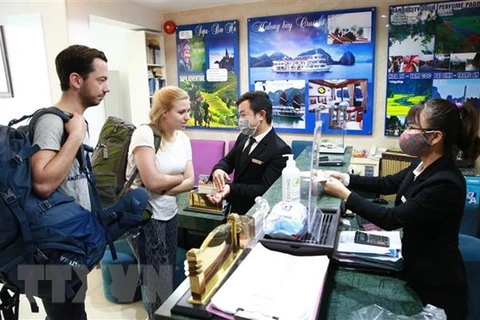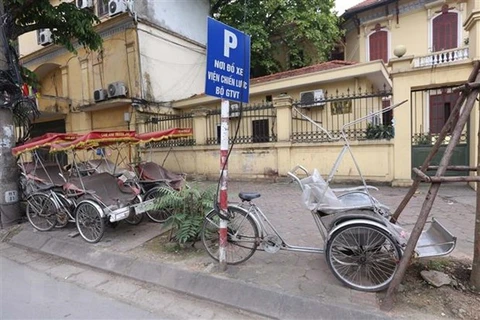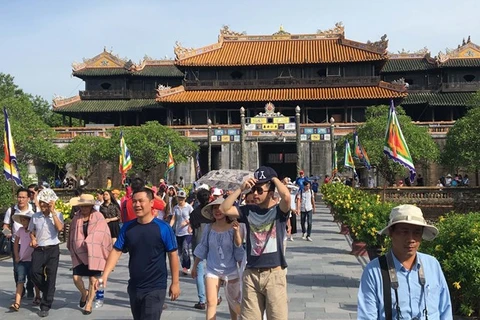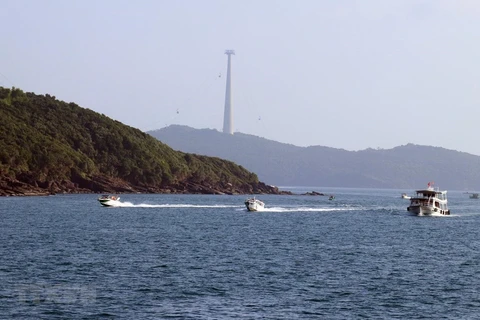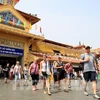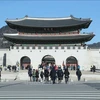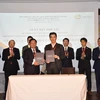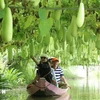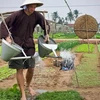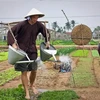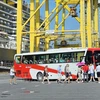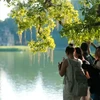Hanoi (VNS/VNA) - Most hotels and resorts in Vietnam would resume operations in May with attractive promotions as the country was entering its post-pandemic recovery, said Mauro Gasparotti, Director of Savills Hotels Asia Pacific.
The tourism market would become busy again in the next few months and hotels and resorts should adjust their price policies and promotion programmes to support the recovery, he said. Competition would be harsh, requiring hotel and resort operators to race for exclusive experiences, innovations and promotions to attract tourists.
Mauro said that the recovery would start when the social distancing measures began to be loosened.
“It is the local market that represents the first stage of recovery,” Mauro said.
According to Savills, following the Vietnamese Government’s regulations on social distancing, the majority of hotels and resorts in Vietnam were closed but most were planning to reopen in May with attractive local promotions.
However, people were likely to remain sceptical about flying and the safety of crowded airports so it might take a little longer to feel comfortable boarding planes, which bumped appeal for driving-distance destinations and making the likely short-term winners places like Vung Tau, Ho Tram, Mui Ne, Ha Long, Da Lat and Sa Pa.
The second stage of recovery would be from overseas, once flight bans were lifted and connecting countries were considered safe.
He said that China and the Republic of Korea would be the first to re-open because these were Vietnam’s main international guest source markets (accounting for more than 56 percent of total international arrivals in 2019) and seeing steep reductions of COVID-19 infections.
He added that Vietnam’s already global reputation for being safe was also encouraging the return of foreign arrivals and helping increase national appeal.
The final stage was when the pandemic was successfully over, and global tourism returns to pre-COVID-19 travel policies.
“Once travel restrictions are fully lifted, we still see two major potential impacts: changes in traveller behaviour and the lingering effects of global economic slowdown, and both will require ongoing attention.”
“However, with the global economic impact and evolution of the virus still uncertain, we cannot realistically anticipate full recovery until well into 2021,” he said.
“Our outlook on Vietnam’s hospitality is unchanged, in fact seeing how the country comes together under crisis, it’s actually more positive,” Mauro said. “The perception of Vietnam as a safe, value for money and naturally beautiful destination are all major advantages post COVID-19 and confirms our belief the earliest possible recovery will happen right here.”/.
The tourism market would become busy again in the next few months and hotels and resorts should adjust their price policies and promotion programmes to support the recovery, he said. Competition would be harsh, requiring hotel and resort operators to race for exclusive experiences, innovations and promotions to attract tourists.
Mauro said that the recovery would start when the social distancing measures began to be loosened.
“It is the local market that represents the first stage of recovery,” Mauro said.
According to Savills, following the Vietnamese Government’s regulations on social distancing, the majority of hotels and resorts in Vietnam were closed but most were planning to reopen in May with attractive local promotions.
However, people were likely to remain sceptical about flying and the safety of crowded airports so it might take a little longer to feel comfortable boarding planes, which bumped appeal for driving-distance destinations and making the likely short-term winners places like Vung Tau, Ho Tram, Mui Ne, Ha Long, Da Lat and Sa Pa.
The second stage of recovery would be from overseas, once flight bans were lifted and connecting countries were considered safe.
He said that China and the Republic of Korea would be the first to re-open because these were Vietnam’s main international guest source markets (accounting for more than 56 percent of total international arrivals in 2019) and seeing steep reductions of COVID-19 infections.
He added that Vietnam’s already global reputation for being safe was also encouraging the return of foreign arrivals and helping increase national appeal.
The final stage was when the pandemic was successfully over, and global tourism returns to pre-COVID-19 travel policies.
“Once travel restrictions are fully lifted, we still see two major potential impacts: changes in traveller behaviour and the lingering effects of global economic slowdown, and both will require ongoing attention.”
“However, with the global economic impact and evolution of the virus still uncertain, we cannot realistically anticipate full recovery until well into 2021,” he said.
“Our outlook on Vietnam’s hospitality is unchanged, in fact seeing how the country comes together under crisis, it’s actually more positive,” Mauro said. “The perception of Vietnam as a safe, value for money and naturally beautiful destination are all major advantages post COVID-19 and confirms our belief the earliest possible recovery will happen right here.”/.
VNA

